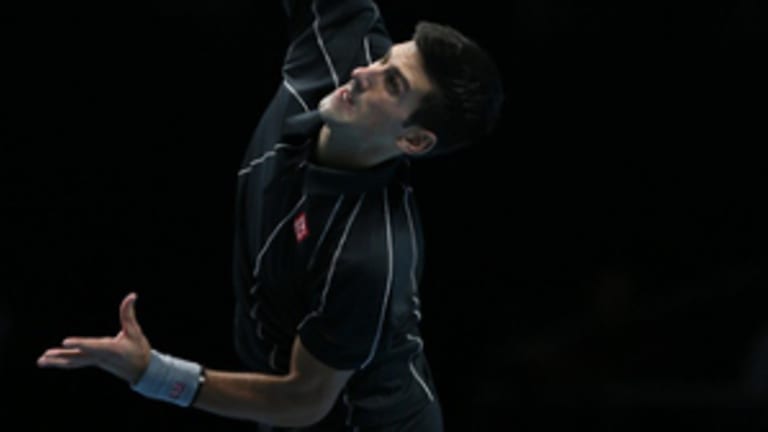“In the fifth set it is not anymore about tennis. It is about nerves.”
That’s probably the most famous quote uttered by Boris Becker, a six-time Grand Slam champion and a player renowned for his competitive drive. As far as coaching advice goes, though, it’s a little bit thin. So it’s going to be interesting to see how it’s all going to work out for Novak Djokovic, who has just added Becker to his team as the new head coach.
Djokovic made it clear that this is an addition—rather than a substitution—to his team. Marian Vajda, the guiding hand behind Djokovic’s greatest feats, will still be in the thick of it, even if it’s at a significant remove. Vajda will accompany Djokovic to only four tournaments (Indian Wells, Madrid, Toronto, and Beijing), while Becker will be the on-site coach of record for a dozen events, including all the majors.
Given how close and successful Djokovic and the diligent, low-key Vajda have been, you have to wonder what precipitated this move. There’s one clue, in comments by Vajda that were released by the Associated Press at the same time as remarks made by Becker and Djokovic. “I realized that Novak needed a new head coach in order for him to continue improving certain parts of the game,” Vajda declared. “In the same time, I will have more time for my family.”
This suggests that Vajda is very close to suffering coaching burnout. The job of an elite coach may look cushy, but being at a player’s beck-and-call, even if that player is independent and thoughtful, gets very wearing over time. And the better the player, the more stressful and time-consuming that job can be. A coach spends the lion’s share of his time sitting and/or watching, and traveling when you’re no longer a footloose, carefree, and single guy becomes a grind.
But Vajda’s remark also points toward some “improvement” Djokovic needs, and that part is a little mystifying. We know that there’s nothing wrong with Djokovic’s strokes. He may have the most complete, bulletproof game of any player—ever. The difference between the “weakest” and “strongest” elements in his game is smaller than in any other man.
That leaves the intangibles, or the mental game. There, too, it’s hard to find much room for improvement—at least not in the big picture. Djokovic is a superb competitor who lacks nothing in the department of determination. This is a guy who knows what those fifth sets Becker spoke of are about, which Rafael Nadal can ruefully attest.
Yet, if there’s a caveat to add, it’s that except for his heavenly 2011 season, Djokovic has sometimes been guilty of squandering golden opportunities in the biggest matches he’s played. The greatest example of that was in his loss to Nadal in the semifinals of this year’s French Open. You know, the botched overhead and all that.
My feeling at the end of this year, and I expressed it often, was that Djokovic was not vigilant enough about his No. 1 ranking. He took his foot off the gas and allowed the resurgent Nadal to sneak in and snatch back that honor, realizing too late in the year that he was in real trouble. That Djokovic played like a house on fire once the realization dawned is cold comfort, because in the end his effort was too little, too late.
Curiously, the best way to understand this partnership may be comparison with the one between Djokovic’s friend Andy Murray and Ivan Lendl. You can call Lendl a “head coach,” but I think “friend and adviser” is almost a more accurate description of their relationship. I know Murray’s forehand is much improved, his tendency to over-defend diminished, yadda-yadda-yadda. But Lendl’s great contribution was to get Murray to relax and believe in himself; the Scot was like a horse led to water by a patient and gentle hand on the halter.
But Lendl always was more into the Xs and Os of tennis than was Becker. Lendl always was a student of the game, analytical and cold. By contrast, Becker is “hot,” more inclined to rely on the powers of the mind and heart than the hands. Could it be that the difference between winning the French Open and accepting the runner-up trophy can come down to looking up at the player box and seeing Wimbledon icon Boris Becker flashing you a fist pump?
